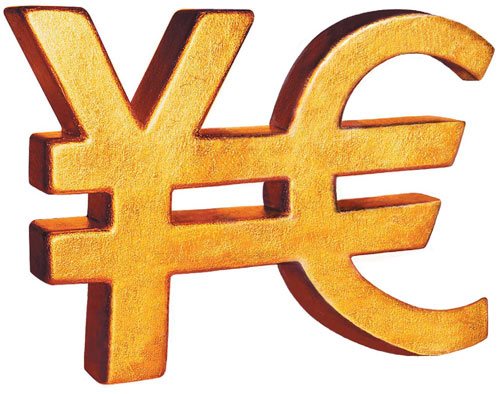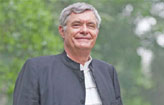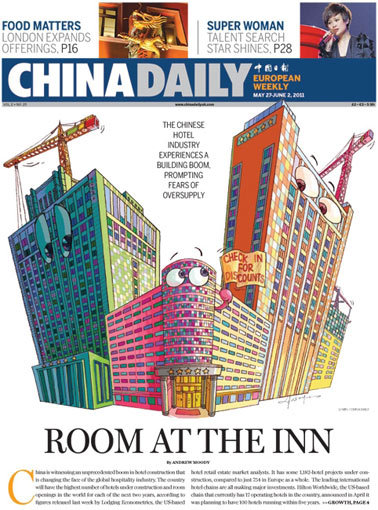IMF still needs to make changes to its structure
Updated: 2011-05-27 10:58
By Gao Haihong (China Daily European Weekly)
Current power shift does not match existing institutional arrangements
|

|
When Dominique Strauss-Kahn stepped down as the managing director of International Monetary Fund amid sexual assault accusations, divisions emerged across the world as to who should take his place.
German Chancellor Angela Merkel and European Commission President Jose Manuel Barroso both called for a European replacement, as that has been the norm since the IMF was founded after World War II. However, I think the emerging economic powers should also take a more active role in the decision-making process.
The main role of the IMF is to provide financial aid to the 187 member countries during financial crisis.
In the past few decades, the IMF has played a positive role in promoting global monetary cooperation and ensuring global financial stability.
However, the outbreak of the global financial crisis in 2007 fully exposed the IMF's long-term problems. The core issue is the IMF failed to adapt to the international economic situation changes brought on by the fast development of globalization and fast-growing emerging economies.
At the G20 meeting in London in 2009, the leaders reached a consensus on the necessity of overhauling the IMF.
Overall, the IMF reform plan focused on improving the fund adequacy, loosening the assistance requirements, strengthening the supervision and adjusting the governance structures.
The top priority of the reformation was to enlarge the amount of funds available. From 2009 to now, the funds for lending has expanded from $250 billion (178 billion euros) to $750 billion, which has greatly improved the capability of providing more assistance to its member countries.
In its recent aid to countries in sovereign debt crisis, such as Ireland, Greece, Lithuania and other European countries, the IMF, in cooperation with the European Union, the European Central Bank and national financial authorities of each country, played an important role in preventing the crisis from getting worse. Currently, the IMF has committed to provide a total of $250 billion loans to countries in crisis. The amount of assistance has reached historic highs.
The IMF has changed its harsh, rigid lending model to a more flexible one. It maximizes the flexibility in terms of loans, loan terms, loan types, which to some extent, improves the effectiveness of the loans.
In terms of the IMF's oversight functions, an important change is that it altered the hard-line stance on capital controls in developing countries and, for the first time, recognized the justifiability of capital controls in some conditions. This was done after the comprehensive discussion and studies inside the IMF on how individual countries choose their monetary policy to deal with the impact of the capital flows. This shift meets the practical needs of those developing countries with small domestic financial markets and a weak domestic financial sector.
In the governance structure, the IMF has focused on how to enlarge the shares and voting rights of emerging economies, such as China. In the past few decades, the rapid emergence of the market economies with the fast growth rate has changed the world economic landscape. However, developed countries are still playing a dominating role in the process of global financial rule making.
This current power shift in the world economy mismatches the existing institutional arrangements, greatly hindering the global rebalancing process and international financial market stability.
Even though, after the breakout of the financial crisis, the IMF has adjusted allocation of shares to some countries, it still underestimates the importance of emerging economies.
China has become an important funds provider to the IMF. After the onset of the financial crisis, China tripled its shares in the IMF. As the world's second-largest economy, China's voting shares rank sixth in the IMF. India is the world's fourth-largest economy, but its voting rights in the organization are 11th. At the same time, the voting shares of some rich and small European economies in the IMF are seriously overvalued.
In December, IMF's top decision-making group approved a package of reforms.
In addition to doubling the total volume of aid capital, the IMF promised to increase the voting rights to the dynamic emerging markets and developing countries by 6 percent. By then, the voting rights of China, Brazil, India and Russia, the four BRIC countries, will be in the top 10. The voting rights of China will rise to third place, behind the United States and Japan. At the same time, to reflect the IMF's concerns of poor countries, the organization also increased the voting right shares of some low-income countries.
Another important area of the IMF's governance structure is its top management appointment. When the IMF was first established, the personnel arrangements between the World Bank and the IMF have formed such a practice, where the Europeans are in charge of the IMF while the Americans are in charge of the World Bank. This arrangement conforms to the post-war global economic landscape. Today, this arrangement has not changed.
However, when Dominique Strauss-Kahn resigned as managing director of the IMF after an alleged sexual assault incident, the conversation was reignited.
In all kinds of speculation, although Germany has made it clear that the Europeans will still insist on ruling the IMF, there are also voices that have advocated to elect a representative from an emerging country.
Throughout the international financial situation changes, if the international organizations have adjusted themselves to the emergence of new markets and developing countries, it will not only enhance the reasonability of the IMF's governance structure, it will also give more appropriate rights to emerging economies in the process of international monetary cooperation. This adjustment, although, cannot be achieved in the short term. It should be a long-term goal.
The author is a scholar with the Chinese Academy of Social Sciences.
E-paper

Thawing out
After a deep freeze in sales during the recession, China’s air conditioner makers are bouncing back
Preview of the coming issue
Cool Iron lady
Of good and evil
Specials

Memory lanes
Shanghai’s historic ALLEYS not just unique architecture but a way of life

Great expectations
Hong Kong-born singer songwriter rises to the top of the UK pops.

A diplomat of character
Belgian envoy draws on personal fascination to help build China ties.
